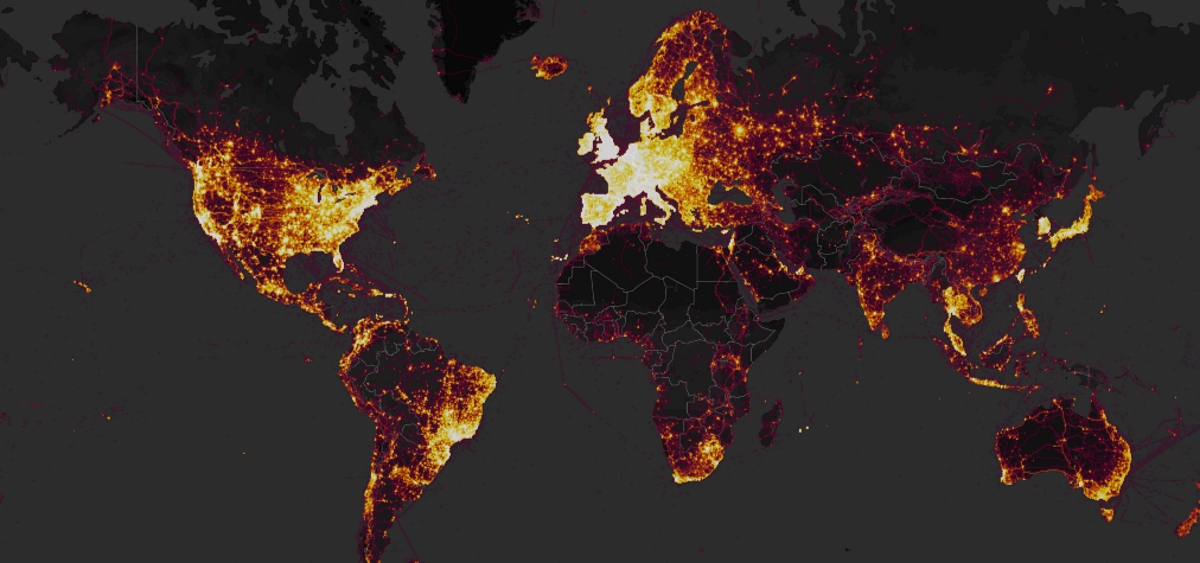Jogging soldiers are giving away the locations of military bases around the world
- Monday, January 29th, 2018
- Share this article:
 Fitness tracking app Strava, which dubs itself as ‘the social network for athletes’, could be posing a risk to national security around the world.
Fitness tracking app Strava, which dubs itself as ‘the social network for athletes’, could be posing a risk to national security around the world.
The app, which maps people’s exercise habits via GPS and enables them to share their running routes, published an updated version of its global heatmap back in November. This update saw the scale of the map increase to 1bn activities with 3bn latitude and longitude points and 10 terabytes of raw input data, among other things.
Despite its release a few months ago, it was only discovered over the weekend that the app could be dangerous as the global heatmap was illuminating military bases around the world, which are in otherwise remote locations.
The issue was highlighted by a 20-year-old Australian student named Nathan Ruser – who is studying international security and the Middle East, and is a founding member of the Institute for United Conflict Analysts.
Ruser tweeted: “If soldiers use the app like normal people do, by turning it on tracking when they go to do exercise, it could be especially dangerous. This particular track looks like it logs a regular jogging route. I shouldnt be able to establish any Pattern of life info from this far away.”
Since the revelation, several people have been able to use the global heatmap to home in on suspected military bases via the fact there has been a lot fitness activity in certain remote areas.
It’s important to note that the information on the heatmap isn’t live, and all the data is from the two-year period between 2015 and 2017. Furthermore, users of the app do have the option to make their activities public or private, and Strava says it has never included private data in its maps.
Despite many of the bases being common knowledge, there are also a few that are meant to be a little more covert. More concerning is that the data can be scraped to get a list of those that have travelled a route.
As a result, the Pentagon has said it would it would investigate the findings and deal with it appropriately.
















